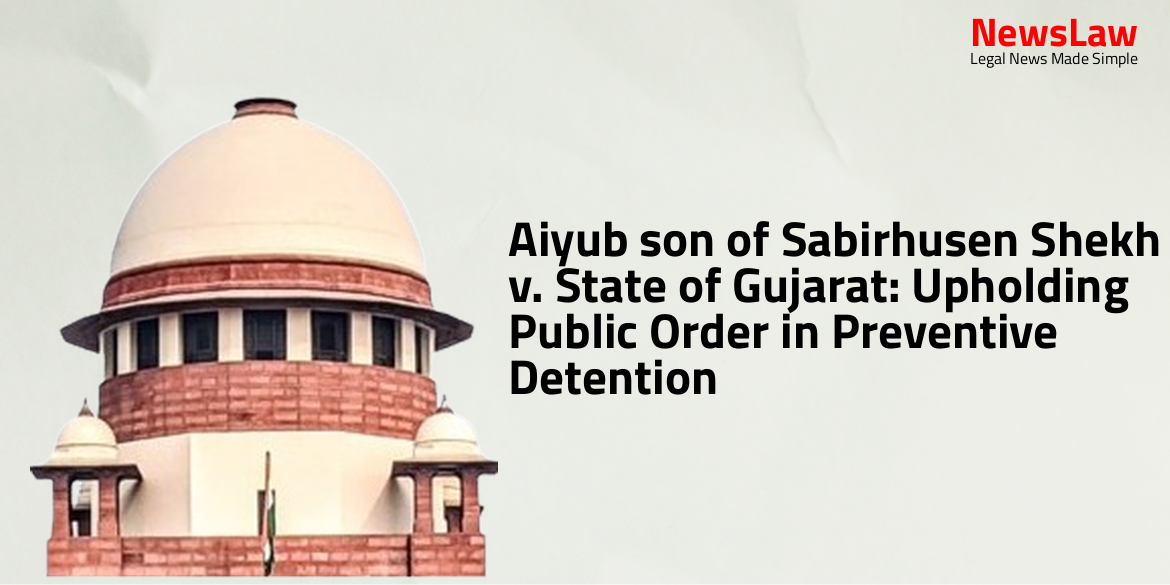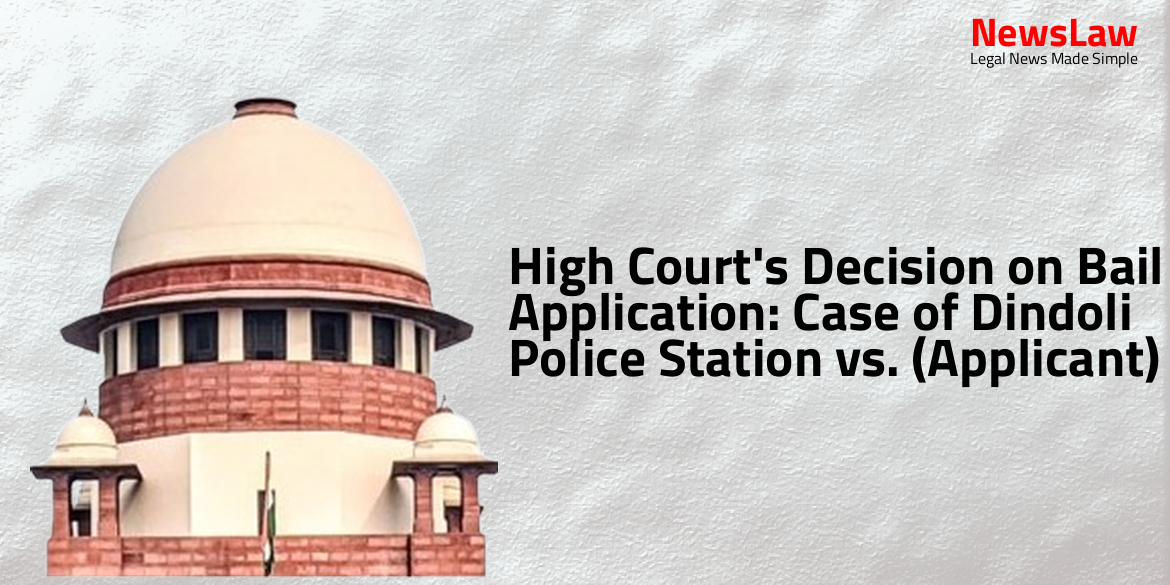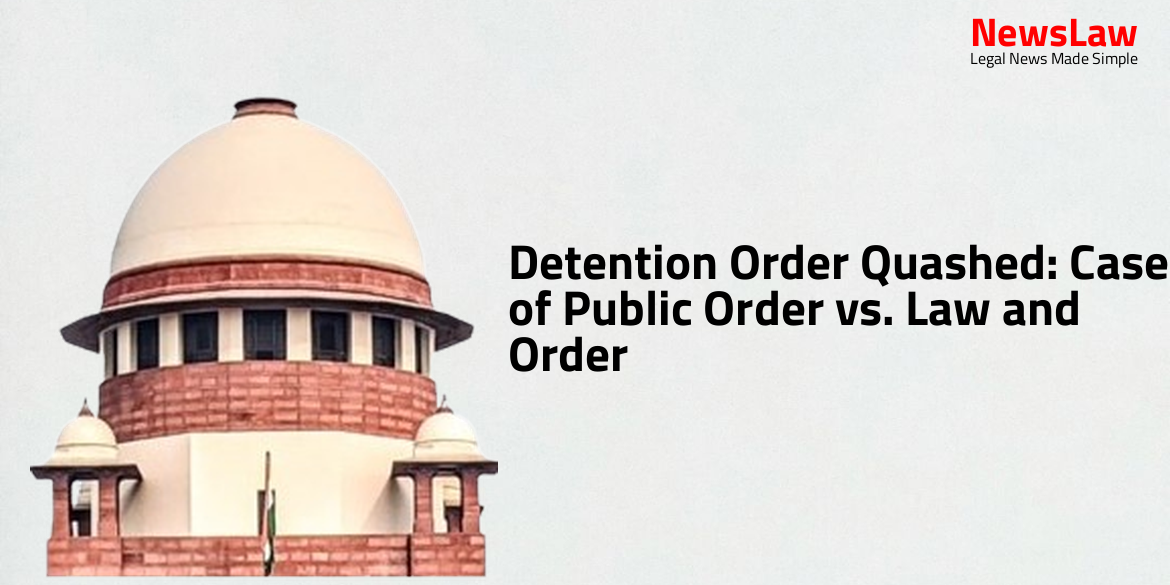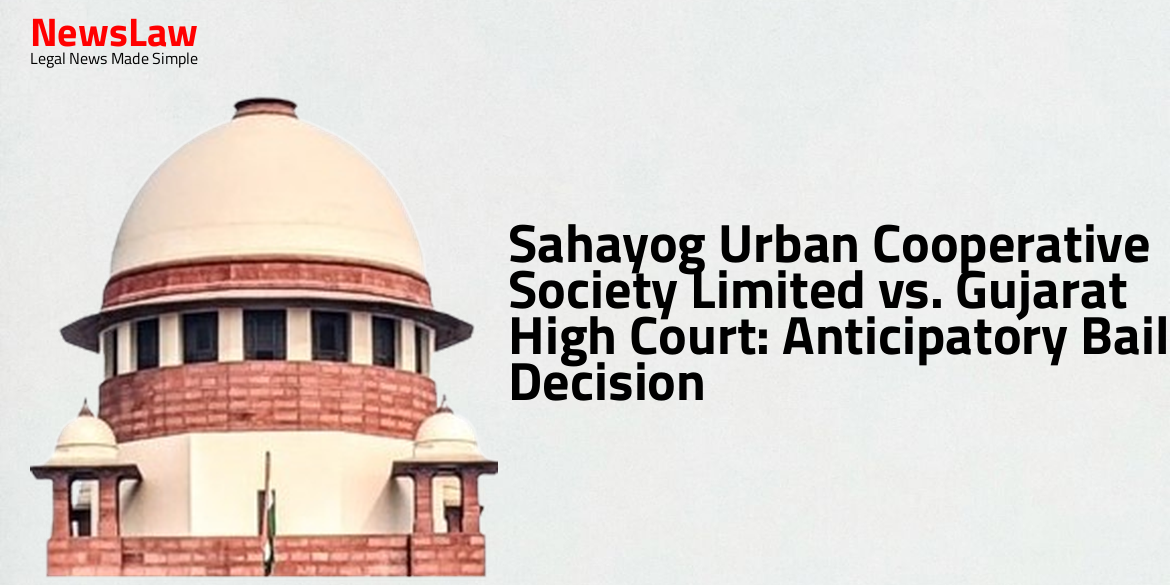The Gujarat High Court recently delivered a significant judgment in the case of Aiyub son of Sabirhusen Shekh v. State of Gujarat, addressing the fine line between law and order concerns versus impacts on public order. The court’s decision sheds light on the necessity for evidence showing adverse effects on public order for a valid preventive detention order. Stay tuned to explore the nuances of this crucial legal distinction.
Facts
- Petitioner, Aiyub son of Sabirhusen Shekh, was preventively detained under the Gujarat Prevention of Anti-social Activities Act, 1985.
- The detention order was passed by the Police Commissioner, Ahmedabad, on 30.12.2023, classifying the petitioner as a ‘dangerous person’.
- The petitioner has challenged the legality and validity of the detention order.
- The impugned order was executed, and the petitioner is currently in jail.
Issue
- The issue at hand is the sustainability in law of the order of detention passed by the Detaining Authority under the Act of 1985.
- The determination of whether the order of detention is legally sound involves a substantial question of law regarding the interpretation of the Constitution of India or any order made thereunder.
- The judgment will be based on an analysis of the presented facts and arguments from both parties.
Arguments
- The learned advocate representing the detenue argues that the grounds of detention do not pertain to public order but are related to law and order.
- The advocate asserts that the alleged offences committed by the detenue do not impact public order as defined in the Act but only relate to law and order issues.
- It is argued that the detenue’s activities are a threat to law and order, not public order.
- On the other hand, the State Counsel opposing the application claims that the detenue is a habitual offender whose activities have a significant impact on society.
- The State Counsel argues that based on the detenue’s history and actions, the Detaining Authority issued the order to prevent him from harming public order in Ahmedabad.
Analysis
- The detaining authority wrongly concluded that the detenue’s activities were prejudicial to the maintenance of public order based on two criminal cases.
- The offences committed by the detenue do not impact public order but may relate to specific individuals or public interest secondarily.
- Disturbance of law and order is not sufficient for preventive detention; it must be proven to affect public order.
- The detaining authority failed to prove that the detenue’s anti-social activities were likely to adversely affect public order.
- Cases of beating by the detenue should be addressed through ordinary criminal law, not preventive detention, as they do not disrupt public order significantly.
- In the case of Pushkar Mukherjee v. State of West Bengal, the distinction between ‘law and order’ and ‘public order’ was clearly defined.
- A line of demarcation must be drawn between serious, community-affecting disorder and minor breaches of local peace.
- The case of Piyush Kantilal Mehta Vs. Commissioner of Police, Ahmedabad, 1989 Supp (1) SCC 322 highlighted that mere disturbance of law and order is not sufficient for preventive detention action.
- Ramaswami, J. emphasized that for an act to be considered as affecting ‘public order,’ it must impact the community or the public at large.
- Not every act of assault or injury to specific individuals leads to public disorder, as it must affect the community as a whole to be classified as such.
- Individuals cannot be preventively detained under the Act unless their activities as a bootlegger affect adversely or are likely to affect adversely the maintenance of public order
- The material on record is insufficient to show that the detenue’s activities have adversely affected public order.
- The detaining authority’s subjective satisfaction is not legal or valid based on the evidence.
- The petition is allowed as the alleged offenses do not create a sense of insecurity or panic among the public in the area.
Decision
- The detenue is directed to be set at liberty forthwith if not required in any other case.
- The rule is made absolute accordingly.
- The order dated 30.12.2023 passed by the respondent authority is quashed.
Case Title: AIYUB S/O SABIRHUSEN SHEKH THRO SABIR HUSEN S/O GULAM HUSEN SHEKH Vs. COMMISSIONER OF POLICE, CITY OF AHMEDABAD
Case Number: R/SCA/1524/2024



